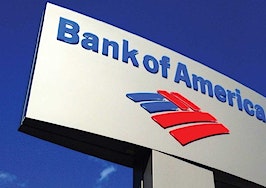Although 87 percent of homes qualify for down payment assistance, many potential homebuyers have no idea that they may be eligible for programs that could save them thousands of dollars.
Down Payment Resource (DPR) is looking to change that.
Developed by Workforce Resource, a Web-based software company that works to connect people with hard-to-find financial resources, DPR connects potential homebuyers to down payment assistance funds they may not have otherwise known existed.
And according to a recent DPR study conducted jointly with housing data provider RealtyTrac, 68 million homes qualify for a down payment program available in the county where they are located based on the maximum price requirements for those programs and the estimated value of the properties.
“Most consumers today don’t know these programs exist, how to ask for them or where to even begin looking,” said Rob Chrane, CEO of DPR.
Chrane, who worked as a real estate agent and broker for more than a decade and as a mortgage broker, loan originator and senior executive for 20 years, said this was “simply a pain point I was very aware of that we set out to solve.”
“First, we set out to find all of the programs,” Chrane said. “They are so fragmented and come from so many different agencies, with at least 1,200 different program administrators. There were also different eligibility rules and benefits. We then developed proprietary Web tools and algorithms to allow real estate professionals and lenders to automate the process of matching potential buyers to properties with one of more of these programs.”
By visiting DPR’s website, downpaymentresource.com, potential homebuyers can mine the company’s national database of 2,300 different programs in their local areas to find out down payment help in the form of grants, federal housing agency programs, delayed repayment loans, interest-free loans and more.
Many of these programs can be layered with each other and can often be used with most loan products, including federal housing agency loans. DPR is endorsed by the National Association of Local Housing Finance Agencies.
Although most programs are geared toward first-time homebuyers, Chrane explained that some programs have a different definition for that category of homebuyers.
The Federal Housing Administration (FHA), a division of the Department of Housing and Urban Development (HUD), defines a first-time homebuyer as “an individual who has had no ownership in a principal residence during the three-year period ending on the date of purchase of the property.” This includes a spouse.
“So for millions of people who went through foreclosure and short sales who are now working to re-establish their credit, they could still qualify for many programs,” Chrane pointed out.
Although these programs may seem like a pot of gold at the end of a rainbow, buyers still have to meet minimum credit score and income standards and ensure they do not exceed maximum liquidity tests, and may need to repay some forms of assistance. But searching the database is “still worth a few minutes of your time to potentially get that benefit when you buy a home,” Chrane said.
“Many homebuyers, especially millennials, haven’t fully investigated their home financing options because they are pessimistic about qualifying for a mortgage,” he said.
According to Chrane, the average assistance amount in the company’s database of programs is nearly $12,000.
“That doesn’t mean everyone will get $12,000,” he noted. “Some will get $20,000, some will get $10,000. That’s an average. It’s a substantial benefit that could really help a lot of people. It’s important for buyers to research down payment programs as part of their loan shopping process.”
But DPR is also geared toward helping real estate and mortgage professionals find programs for potential buyers, as well, and about a quarter of the website’s users fall into those categories, Chrane estimated. DPR is licensed directly to multiple listing services across the country as a fully integrated service where a special icon is displayed on any property listing that may qualify for one or more homeownership programs.
Financial institutions are also licensing DPR to educate their customers and help their mortgage loan officers more efficiently match eligible borrowers to available programs.
“When an agent logs into an MLS and searches for homes he can show, he can see if a home is eligible for any programs and see if his customer is eligible for that. It’s a good tool for listing agents who are going out and competing for listings,” he said.
Even if these agents discover that a buyer doesn’t qualify for assistance, some good can still come from that, said Chrane.
“When we do surveys, we typically get a few comments from Realtors that maybe a buyer made too much money to qualify for a program, but they bought the home anyway, because the agent built trust with the buyer by telling them something they didn’t know about. They become a trusted adviser, and this could lead to referrals to other buyers or repeat business.”
Chrane is an Inman industry contributor. DPR was the 2011 winner of Inman’s “Most Innovative New Technology” Innovator Award.








